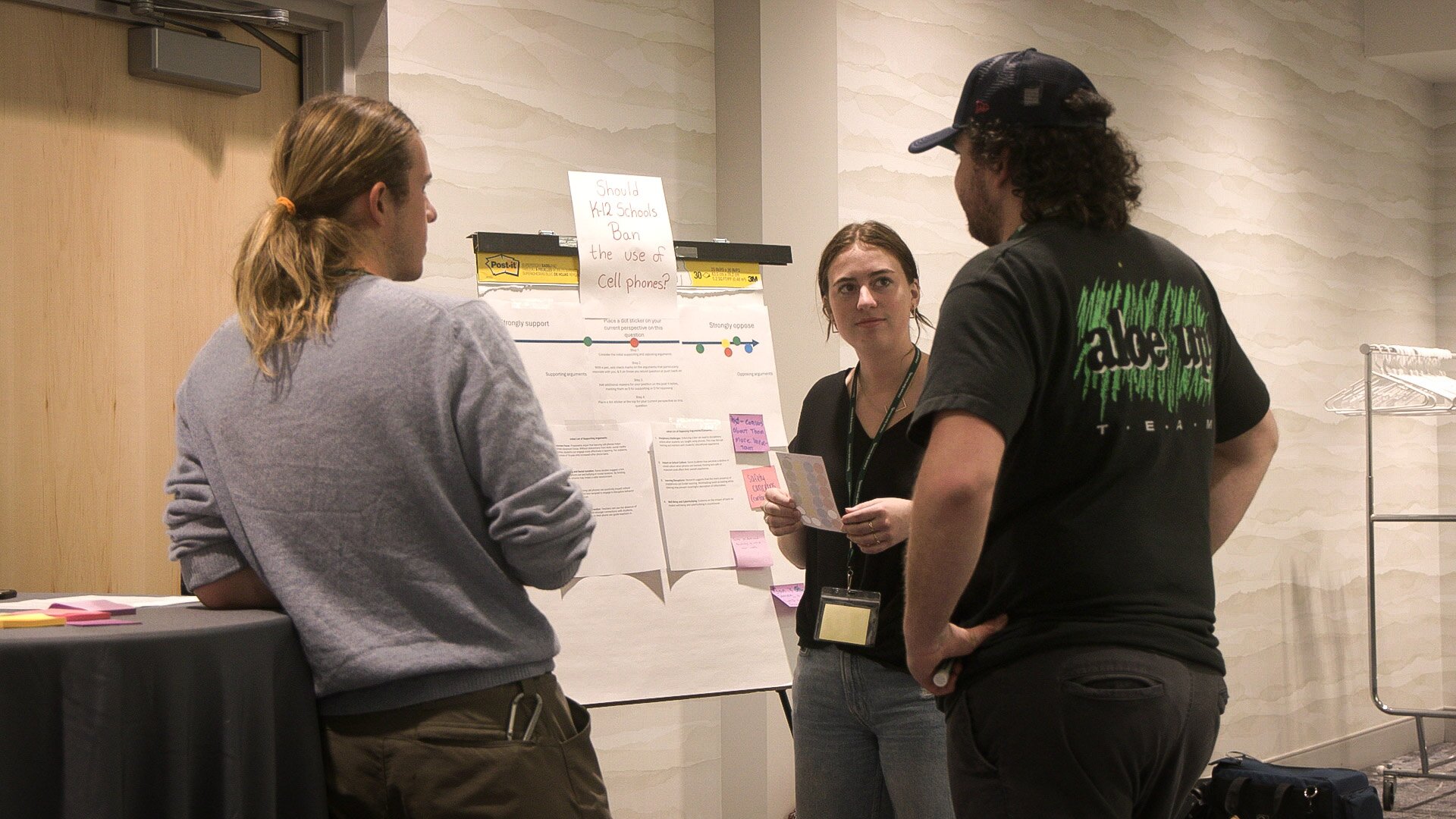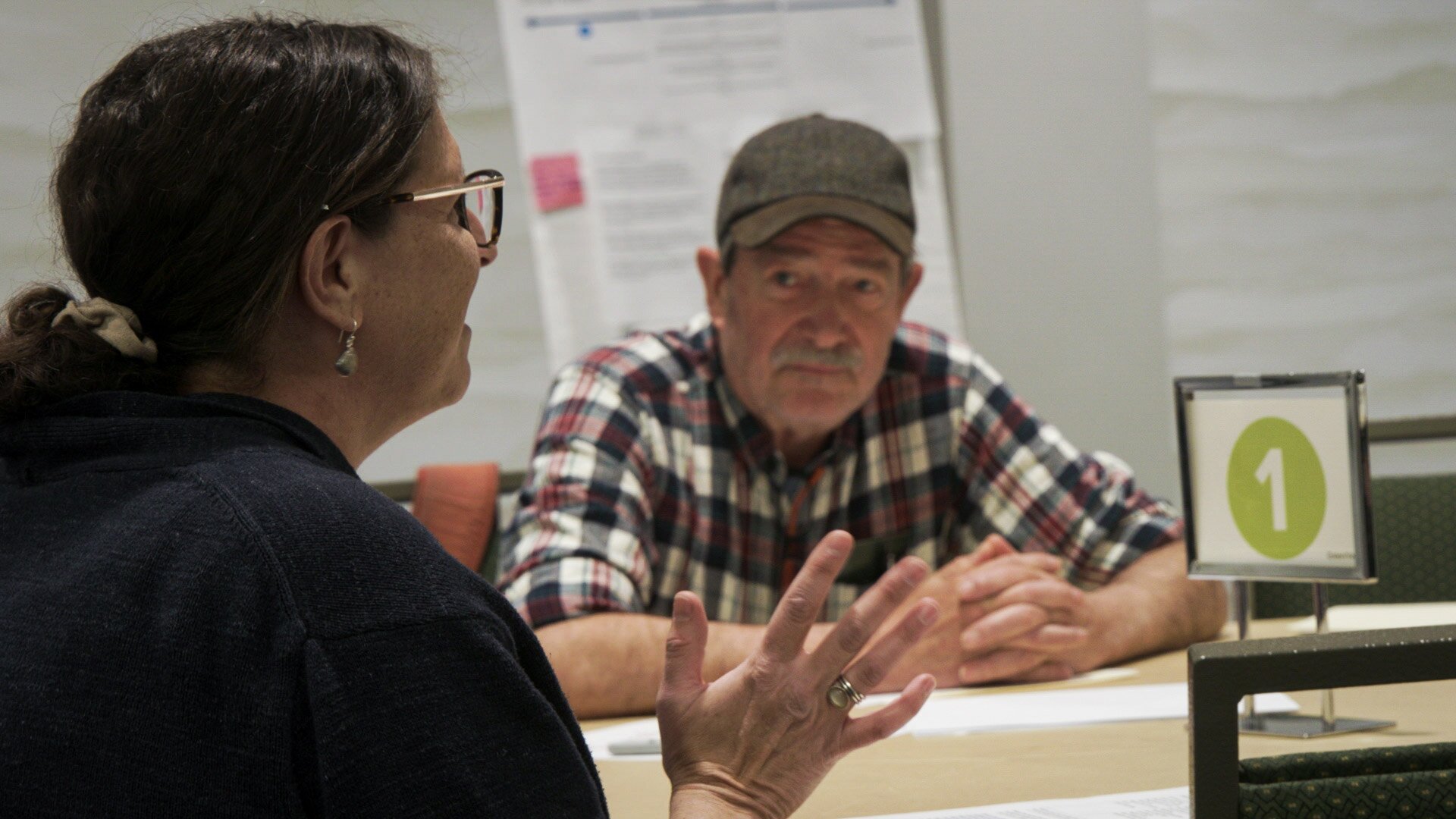Colorado State University hosts summit to turn students into champions for democracy

FORT COLLINS, Colo. — Colorado State University wants students to understand that democracy is not an abstract textbook concept fit only for classroom discussions. It’s a call to action and framework for how to engage with one another.
“We have a very decisive election coming up. We want to prepare our campus for that election,” said Emily Orozco, a fourth year student and Strayer Center Democracy Fellow. “A lot of the students here, it's going to be their first time ever voting. And I think there's just a lack of education available to students about the ability they have to engage in democracy.”
Last week, the university hosted its first “Democracy Summit” as the culmination of its yearlong focus on democracy. The weeklong series of events included discussions with guests such as comedian W. Kamau Bell, spaces to debate current events, documentary film screenings and talks by esteemed academics, including social scientist Robert Putnum.
The university’s decision to focus on democracy comes amid a slew of challenges facing American politics, from growing political polarization to chronic misinformation. But instead of dwelling solely on such challenges, many of the workshops, discussions and activities sought to renew students’ sense of agency and explore ways to overcome obstacles and strengthen democracy at the community level.
“People are sick of just screaming at each other. I think they are sick of all the division and polarization. When you give people an alternative, they see the value of it,” said Martín Carcasson, professor of Communication Studies at CSU, who helped put on the summit.
Carcasson started as an assistant professor at CSU in 2003. Since then, he’s seen more challenges to free speech and healthy political discourse.
“The political polarization, the tactics that are being used at the national level, unfortunately, start kind of bleeding down, and make it harder and harder for us to have some of these tough conversations,” he said.
None of this comes as a surprise for the professor, much of his research focuses on the psychology behind political polarization.
“Humans, unfortunately, are much more wired for polarization and outrage,” he said.
“We like simple stories. We like good versus evil. We love our heroes and our victims and our villains. And once we decide who's playing what role, we see the world through that lens.”
As a Democracy Fellow, Orozco has conducted research in classrooms and spoken with fellow students about their perceptions of democracy. According to her, the biggest challenge is getting students to care.
“It's very easy for people to feel indifferent or ignore things when they feel they're powerless in a situation,” she said.

Students discuss whether schools should ban the use of cell phones at an event for CSU’s Democracy Summit.
Photo: Cormac McCrimmon, Rocky Mountain PBS
Although Colorado had the 5th highest turnout nationally among young voters (18-29) in the 2022 election, young-voter turnout consistently lags behind other demographic segments.
Orozco believes the secret to engaging students is simple: Students care about issues that affect them. Highlighting local questions,such as Fort Collins’s U + 2 Occupancy Limit, which restricts the number of people who can live together and affects residents living with roommates, can help to energize students to exercise their power at the ballot box, she said.
At the national level, 57% of young people ages 18-34 say they are “extremely likely to vote” in 2024, with another 15% saying they are “fairly likely to vote,” according to data from the Center for Information and Research on Civic Learning and Engagement (CIRCLE) at Tufts University. CIRCLE also reports that the top concerns for young voters are inflation/cost of living, gun violence and climate change.
Although voting remains one of the most powerful ways to engage in democracy, leaders at the CSU Democracy Summit also focused on how students can exercise their power in other ways.
At a workshop on the erosion of rights, Orozco, Hannah Prinzi and Anya Kaplan-Hartnett led fellow students through a series of art-based reflections on what it means to hold rights in this country and how it feels when they are taken away. They demonstrated how to write letters to elected officials and hosted a conversation on the role art can play in creating change.
At another session — a “Civic Skill Building Workshop” — students, community members, and faculty participated in round table discussions and debates over hot button political issues, including whether K-12 schools should ban cell phones, if university presidents should take public stances on controversial issues and whether election day should be a national holiday.
The event was an example of the type of work Carcasson pioneered as the founder of the CSU Center for Public Deliberation. He created the organization in 2003. Since then, the group has hosted hundreds of conversations in Northern Colorado to bring community members together to deliberate on how to solve local political questions.
Carcasson’s students facilitate small group discussions. The goal of deliberation is to introduce people to ideas and perspectives they wouldn’t otherwise encounter and, ultimately, forge consensus that allows community members to take action.
“We have to be able to talk to each other. If we lose that ability, if we have no trust in each other, if half the country thinks the other half is just kind of corrupt or evil, it all breaks down,” said Carcasson.
By training students to have difficult conversations and listen to diverse perspectives, Carcasson hopes to leave his students ready to take the reins.
“The superpower of 21st century leaders needs to be the ability to bring people together across perspectives, rather than just to lead people that already agree with them,” he said.

Community members participate in a round table discussion at CSU’s Democracy Summit.
Photo: Cormac McCrimmon, Rocky Mountain PBS
“It’s important to hear from young people because we are the next generation of elected officials, and politicians, and policy makers,” said Orozco.
While many of the ideas that speakers presented at the summit are easier said than done, history provides a source of hope. In a panel discussion, called “The Meaning of Democracy,” Kermit Roosevelt III, professor of law at the University of Pennsylvania, reminded the audience that the challenges to American democracy are perennial.
“The threat we’re facing to our democracy has been with us from the beginning. It’s one of the threads that runs through American history,” said Roosevelt, who is a descendant of President Theodore Roosevelt.
“No one gave Americans democracy. We had to fight for it. And we have to fight to keep it now.”
Cormac McCrimmon is a multimedia journalist at Rocky Mountain PBS. Cormacmccrimmon@rmpbs.org.